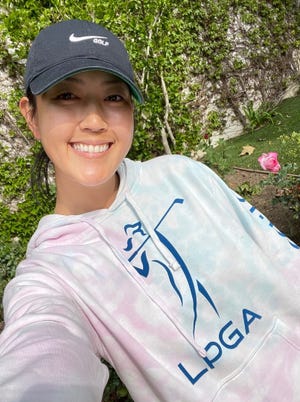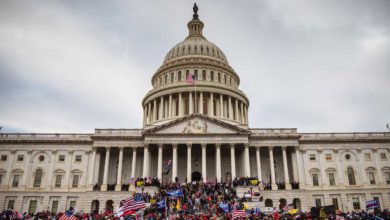
When Michelle Wie West joined the LPGA board this year, she had a few goals in mind. Mainly, she wanted to create more accessibility for communities of color, and increase overall support for women’s sports.
Knowing that access to the sport of golf often leads to opportunities outside of the game, West decided that encouraging girls of color to engage in golf would benefit them far beyond the green.
“What I have noticed is that being able to play the game of golf really opens so many doors for you in the business and corporate world,” West told USA TODAY Sports. “I feel like it will just open so many doors for girls of color to have that opportunity and be able to be a part of those important conversations and discussions.”
West picked apparel as her medium to raise awareness of the game and, while working in tandem with the LPGA, the #HoodieForGolf initiative was born, benefiting the Renee Powell Fund and the Clearview Legacy Foundation.
U.S. Women's Open: Michelle Wie West returns to competition for first time since 2018
More:Beyond the course: How APGA is bringing diversity to golf
The Renee Powell Fund offers need-based grants for girls' golf programs that are inclusive of Black communities, providing access to golf, as well as the resources needed to stay engaged with the sport.
The hoodies create exposure to women's golf but also recognize golf’s history in the Black community, and that includes NBA stars Damion Lee and Kent Bazemore, who have worn them, as have a host of PGA tour members.

“I think that the power of merchandise is super strong and I have seen it with the WNBA," said West, admiring the exposure the iconic orange WNBA hoodies brought to the league. “I just wanted to bring that to the LPGA.”
Renee Powell, who in 1967 became just the second Black woman to compete on the LPGA tour (tennis star Althea Gibson was the first in 1964), has dedicated her life to diversifying the game of golf and keeping her father's legacy of “Golf for Everyone” alive.
Her father William "Bill" Powell, served in the United States Army in the 1940s, and like many Black Americans, upon return from World War II, experienced racial discrimination in the states.
After experiencing racism on the golf course and being prohibited to play at many clubs because he was Black, he decided to build his own. In 1946, the Clearview Golf Club in East Canton Ohio was established.
By 1948, Powell had completed the construction of nine holes, and in 1978, he expanded the course to eighteen. While there are Black-owned golf clubs across the country, Clearview remains the only course in the United States designed, constructed, owned, and managed by an African American.
Working with both Renee Powell and Clearview was of utmost importance to West in her endeavor to provide girls of color with the opportunity to join the sport.
"It has been amazing and so eye-opening and learning about the history of Clearview," said West. "The game of golf is predominantly white and the history of access to the game has a stereotype that it is not very accessible, it is hard to get into and hard to stay in. We are just trying to provide more equity in the women's game and into communities that historically haven't been able to have access or resources."

West hopes to expand diversity in golf, looking toward a future of golf as diverse as the nation.
"I am so proud to be a part of the LPGA," said West. "We are such a global tour. We have girls from all different countries and all different walks of life. The PGA is starting to look like that as well."
West also believes that golf can play a role in bringing awareness to problems facing communities of color.
"At the end of the day, we are all American," said West. 'We are all a part of the same community and I'm really proud of all of the communities standing up for what they believe is right, this past year, especially Stop Asian Hate. It really hits home for me personally. All of the stuff that is happening around the country are happening to people around my grandparents and parents age, so I can just picture it and it is heartbreaking.
"Through the game of golf, we can provide the opportunity to girls of color. I grew up in it and I am so privileged to play the sports and call this sport my job. I just want to provide the same opportunity to girls who might not ever think about it."
Contact Analis Bailey at [email protected] or on Twitter @analisbailey.








